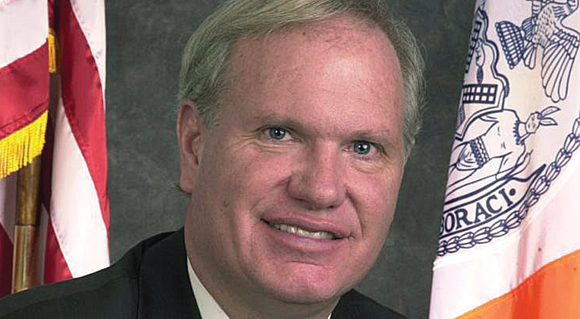Reform has not only been the hallmark of my career as an elected official but last year it was also the central theme of the election cycle. During that time it seemed as though every candidate from across the nation was trying their best to prove that they were the true agent of reform. As we end the second month of our new legislature, it is time that those of us who were elected under the presumption of being reformers start working as a collective to bring about the changes we were entrusted to make.
In doing my part to advance an agenda of reform, I recently fulfilled a campaign promise by introducing legislation (S.298) that, if approved by the legislature and the voters, would for the first time institute term limits for state senators and assembly members. The legislation would institute a maximum of 16 years for State legislators. In addition to that bill, I also introduced a companion bill (S.299) that would change the term of office for State Senators and Assembly Members to four years instead of the current two.
If passed, these changes will be two of the most significant election reforms of state government in decades and they will positively change forever the way legislators conduct their business.
Politicians who serve in the same capacity for countless years tend to become stagnant, arrogant and reluctant to adopt new ideas. Entrenched senior legislators become less concerned with taking on controversial issues and doing the public’s business in favor of cementing their stranglehold on office and gaining leadership positions. This creates an arrogance that eventually leads to dysfunction and corruption.
Opponents of term limits hail election results as the ultimate form of term limits. However, this fails to acknowledge the power of the incumbency and the true nature of the electoral process. Currently over 15 state senators have served in the Senate for 16 years or longer. Many of these senators currently hold senior leadership positions within their parties.
Every election cycle, millions of dollars are spent by political parties and 3rd party special interest groups in promoting their candidates of choice. It is no coincidence that those incumbents who have remained in office and are a known commodity to their affiliated parties and constituencies are often the ones who are funneled the highest amount of cash.
It is extremely difficult for unknown new candidates, who may be full of fresh ideas and an eagerness to contribute to meaningful discourse, to get their voices heard when they are challenging an extremely well financed incumbent whose name recognition alone is often sufficient to win an election. Sixteen years is a balance between the need to retain an institutional memory while still ensuring change, new ideas and fresh voices.
Of course instituting term limits alone will not completely fix Albany. It is also essential to change the term of office for state legislators to create a more effective state government. Not only would this action save the taxpayers money by reducing the number of state senate and assembly elections by half, but it would also eliminate some of the political nonsense that occurs in Albany.
Under the current two year terms, Legislators basically have one year in office before they have to run for re-election. The second year is an election year and legislators are anxious to return to their districts to launch their campaigns. During an election year, Legislators are often extremely reluctant to deal with controversial issues fearing lobbyist and voter reactions.
This legislation will serve to lessen the electoral pressures exerted by the existing two-year legislative term and also allow for legislators to handle difficult issues that may arise in a more deliberate and measured manner. The current two year terms were introduced at a time when the role of government in society was not nearly as extensive at it is today and legislators were not saddled with nearly as large a workload. During that time being a state legislator has gone from a part-time to a full-time job and the issues at hand need the undivided attention of our elected officials.
Both proposed measures would alter the state Constitution. In order to be enacted into law, the legislation would have to pass both the Senate and the assembly during this term and the successive Legislature in 2013, before being approved by the voters in a statewide ballot.
While I acknowledge that the battle to institute term limits will be a difficult one, it is an important conversation that needs to be started. I have already received interest from my colleagues in the senate who are excited to co-sponsor the companion bill and I look forward to garnering more and more support in the days and months to come. With a political climate of reform sweeping the state and the nation – there is no better time.
avella@nysenate.gov



